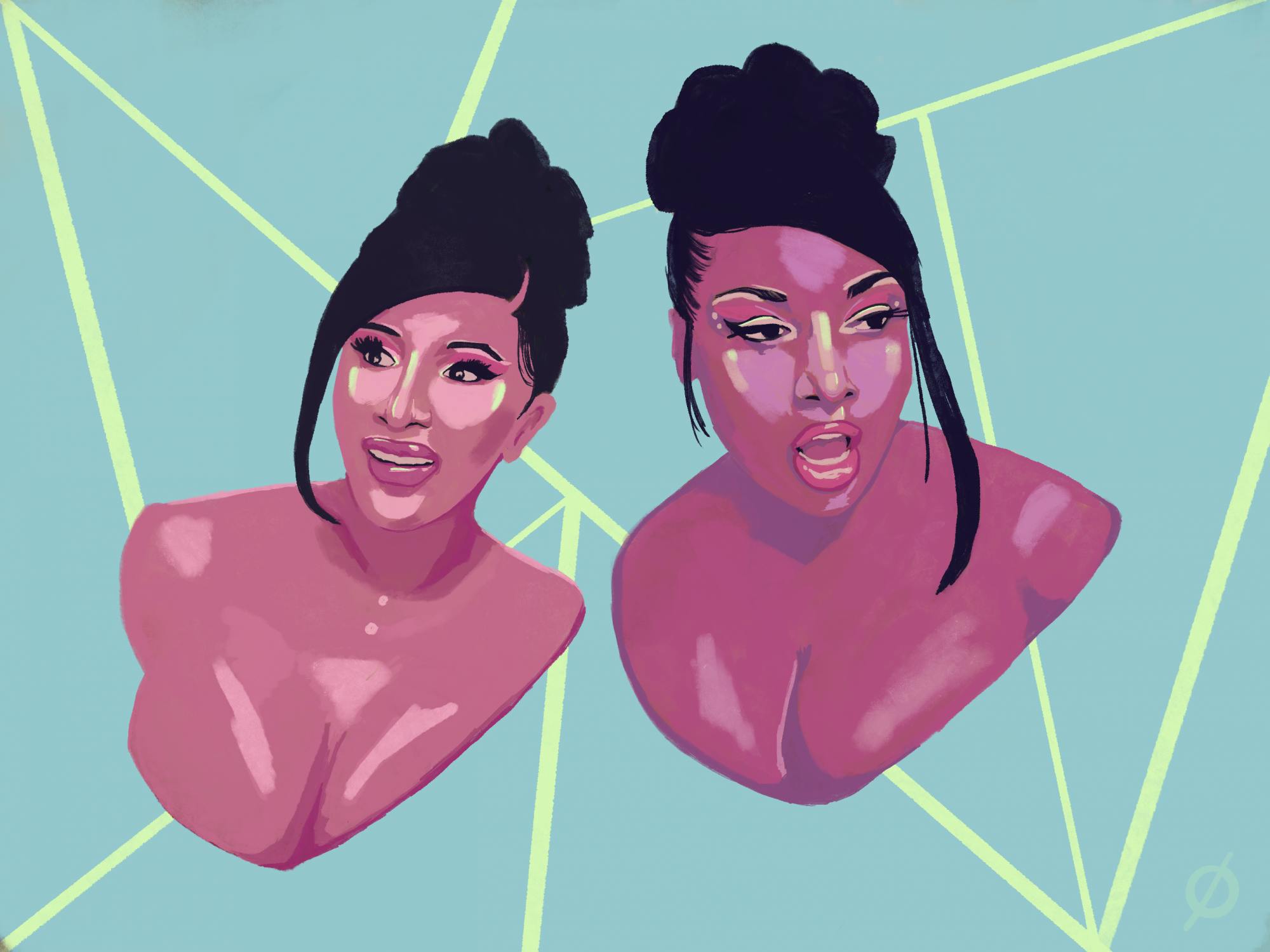Cardi B released her new single “WAP” featuring Megan Thee Stallion and received both emphatic support and opposition in the immediate aftermath. The equally polarizing music video also contributed to the backlash the women faced in the wake of its release.
“WAP” debuted at No. 1 on the Billboard Hot 100 chart and was streamed 93 million times in the U.S. within the first week of its release. With this, “WAP” broke the record for most streams in the first week of any song’s release.
Immediately, the song sparked conversations about sexual empowerment. Cardi B and Megan Thee Stallion rap unashamedly about sex on the explicit track. A divide has formed as to whether the sexually explicit song is a good or bad contribution to pop culture today.
According to Geri Alumit Zeldes, a professor in the School of Journalism and an expert in critical cultural analysis, “WAP” may be garnering so much attention because this is not a topic many women have talked about on such a large scale.
“I think people are glomming onto it because it is relatively new for women … but it isn’t something that has been in our cultural iconography for a really long time,” Alumit Zeldes said. “It’s something that has been in the domain of male rap artists since the beginning of rap. So, in that sense it’s somewhat novel. It’s somewhat new and so that’s why some people are glomming onto this video.”
Nursing sophomore Grace Boatright also thinks that because this is new for women, Cardi B and Megan Thee Stallion are facing more backlash than men who rap about sexually explicit content more often.
Men for centuries have capitalized off of selling women’s bodies for sex, and they like it when it’s for them," Boatright said, "But I think when women have autonomy over their own bodies and are confident in their sexuality people really start to have an issue with that.”
While many people are praising Cardi B and Megan Thee Stallion for releasing “WAP," others feel that the song perpetuates stereotypes in the music industry.
“I think the song just perpetuates the over sexualization of women in music,” communication freshman Jasmine Tarleton said in a Facebook comment. “Just because men sexualize us doesn’t mean we should do it too. As women we should be trying to get rid of stereotypes and this doesn’t.”
Sophomore Shruti Pandey thinks that women reclaiming the same terms men have used to describe women is creating an important conversation about the music industry as a whole.
“There has been so many songs that have been released using the same words by men in reference to women but no one has received this big of a backlash, I suppose, as Cardi and Megan have," Pandey said. "They simply decided to use the same terms to empower themselves and initiated a pretty good conversation about the double standards in the industry."
The timing of the release also may be why “WAP” in particular has seen such a large response from all ends of the spectrum.
“There really isn’t, production-wise, as much being produced," Alumit Zeldes said. "This was released in August, so you’re not seeing a lot of production given that COVID is the case."
“We’re at home right now and a lot of us are online and I think it does give us an opportunity to view videos many more times," she said. "People also have the time to deconstruct what’s going on in this video because they are at home.”
The #MeToo movement may have played into the song’s reception, as well.
“It’s also come at a time where the #MeToo movement has gotten so much credit for bringing these issues to the forefront, so I think that too is allowing people to be more critical or more open to some of this content,” Alumit Zeldes said.
While the song seems to send each listener to one end of a polarizing spectrum, many people are pointing out that sexually explicit lyrics are nothing new in the industry and are comparable to what can be heard on the radio on any given day.
“Our generation has been rapping and listening to songs about sexual things, and even if it wasn’t as directly sexual as this one might be it still had a sexual meaning or intention,” child development freshman Deshawn Will said.
For those unmoved, they don't understand why the song has been singled out when so much music says similar things.
“It is inappropriate but a lot of songs nowadays are, so I guess I just don’t really understand why that song is singled out," apparel and textile design freshman Madelynn Shepard said. "You know it is really raunchy and inappropriate but so are a lot of other songs that are on the radio."
Support student media!
Please consider donating to The State News and help fund the future of journalism.
While there have been many different arguments as to why the song is or is not appropriate, according to Alumit Zeldes the Cardi B song is much more than just a catchy tune, but rather a kick in the door that hides multicultural and gender-influenced topics.
“She is also breaking the doors down in terms of multicultural conversation, not just among Black women but among all women," Alumit Zeldes said. "These are really sensitive, dark topics, and it forces us to look at our sexuality and what we have power over."
Whether the song is appropriate or not is for each individual to decide, but Cardi B is using her art to spark conversations about topics that are important to her.
“Yes, it does have harsh tones to it, but I think that we need to go beyond that prism and look at it as more of an artistry,” Alumit Zeldes said.
All artists use their platforms differently. Whether the general public has a right to comment on how an artist goes about that is up for debate.
“While I don’t agree with the word choices that she has used I really do think that it’s no one’s business what way she wants to express herself through her music,” Pandey said. “I don’t think she deserves to receive backlash for just expressing her opinions and thoughts in her own songs on her own platform.”
Cardi B herself seems to be indifferent when talking about the backlash she has received. In an interview with i-D, the singer simply said, “It doesn’t make me angry. It makes me happy. They keep talking and the numbers keep going up. At the end of the day, whatever they’re saying, the numbers speak for themselves.”
Discussion
Share and discuss “'WAP': How college students feel about the new Cardi B song” on social media.







